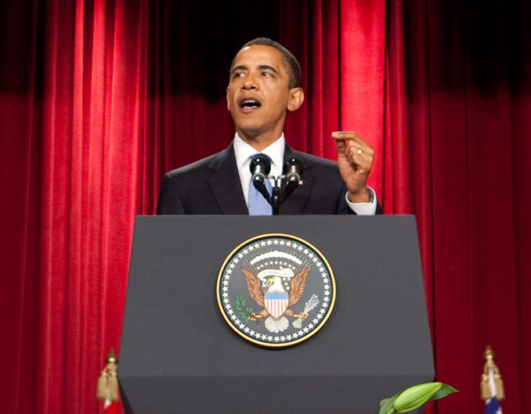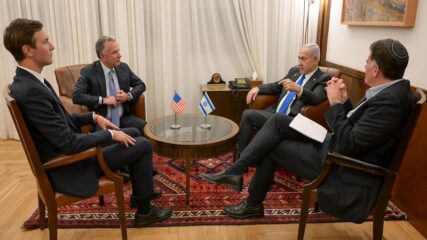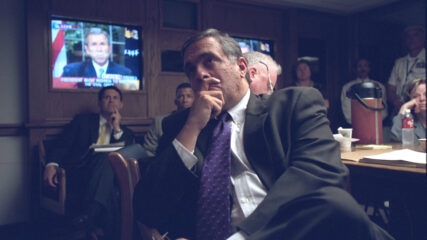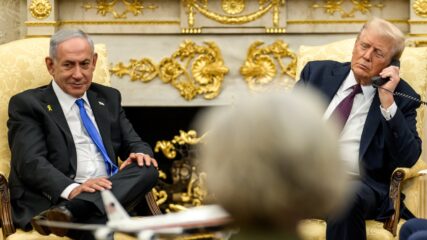June 4, 2009
At the beginning of his first term, President Barack Obama addresses the Muslim world in a speech focusing on mutual interests and respect between Muslims and the West. He delivers the speech to 3,000 guests, including 500 journalists, at Cairo University, in addition to millions via television and the Internet.
As a senator during the 2008 presidential campaign, Obama pledged that if elected, he would make every effort to speak directly to America’s rivals. That promise became a major foreign policy point of contention between Obama and the Republican nominee, Sen. John McCain of Arizona.
From the beginning of his administration, Obama makes it clear that his intention is to improve the relationship between the United States and Muslim countries, a point emphasized when Al-Arabiya is the first network to which he grants an interview as president. In that interview, the new president says, “My job to the Muslim world is to communicate that the Americans are not your enemy.” According to Reuters, the administration selects Cairo as the ideal location for the address because Egypt is the “country that in many ways represents the heart of the Arab world.”
The speech, titled “A New Beginning,” is an attempt to mend the relationship between the United States and the Muslim world and to make clear that the Obama administration is pivoting away from the Bush foreign policy objective of instituting democracy in the Middle East.
Specifically, Obama seeks a U.S.-Middle East cooperative relationship “based upon mutual interest and mutual respect” and “upon the truth that America and Islam are not exclusive and need not be in competition.”
The president speaks to the increased effects of globalization, emphasizing the potential ripple effects from disaster in one area of the world to another: “For we have learned from recent experience that when a financial system weakens in one country, prosperity is hurt everywhere. When a new flu infects one human being, all are at risk. When one nation pursues a nuclear weapon, the risk of nuclear attack rises for all nations. … When violent extremists operate in one stretch of mountains, people are endangered across an ocean. And when innocents in Bosnia and Darfur are slaughtered, that is a stain on our collective conscience. That is what it means to share this world in the 21st century. That is the responsibility we have to one another as human beings.”
Obama reaffirms the United States’ relationship with Israel, referring to the “unbreakable” mutual bond between the two countries. He also recognizes Palestinians’ desire for statehood, saying their situation is “intolerable.”
Reactions to the speech are mixed. A Hamas spokesman dismisses Obama’s remarks as “soft diplomacy” meant “to brighten the image of the United States,” while a spokesman for the Palestinian Authority hails it as “the beginning of a new American policy.” An Israeli government spokesman says he heard no major surprises, and a spokesman for the West Bank Settlers Council says the speech was “out of touch with reality. … The Muslim world is at war with the Western world.”








